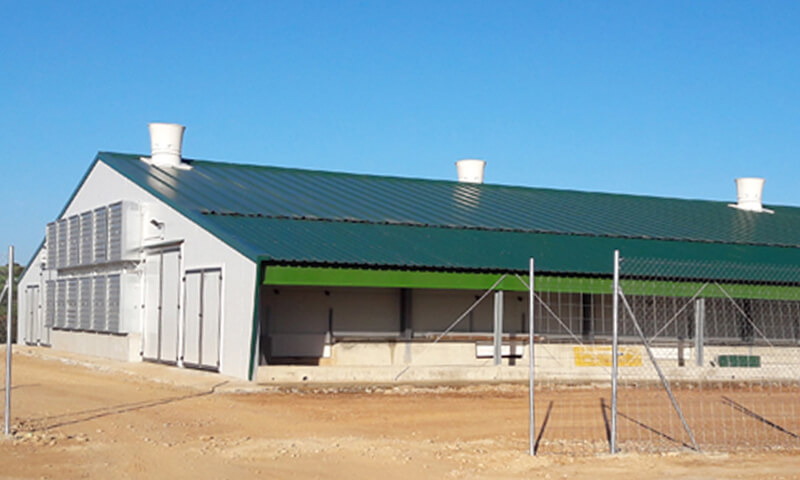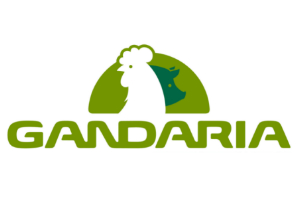The turn-key project recently delivered by Gandaria is built on a 16ha plot of rustic land in Sierra de Guara, in the Somontano de Barbastro region, Spain.
The new farm is composed of 3 buildings: two 100x24m facilities for hens in the production phase and an annexed, 25x20m facility for egg classification and packing, including a separate area for offices, laboratory, biosecurity, changing rooms and other services.
The owners, all veterinarians and with expertise in the sector, knew exactly the standards they needed for the high quality farm they wanted to develop. They trusted in GANDARIA, which delivered the project in 4 months, fulfilling all their expectations.
Each facility is equipped with all the necessary equipment for a free-range hen, with unbeatable animal welfare qualities, no less 4m2 of land per animal, and a density of less than 9 hens per m2 within the facility.
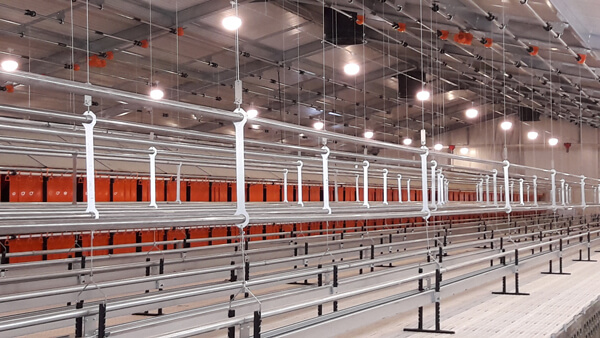
In addition, the controlled air conditioning is carried out by the GANDARIA-COMBI system.
These free-range chickens will enjoy winter gardens to enable them to be outside while being protected from bad weather. The lighting is natural both inside and outside the facility.
After seeing the facilities, one of the farm owners did not hesitate to claim “the hens will be very happy here, and no doubt we will obtain the highest quality eggs”.
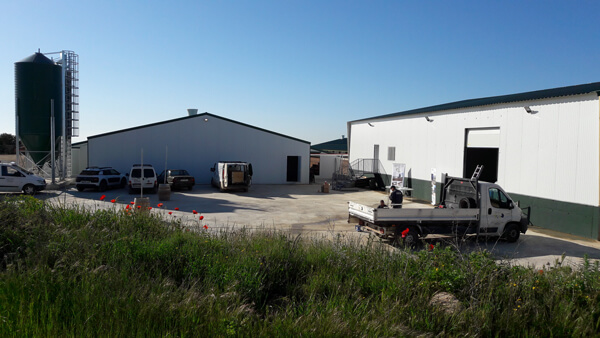
GANDARIA FACILITIES, ALL AN EXAMPLE IN CONSTRUCTIVE DETAILS
STRUCTURE
The metal construction is made of a galvanised structure to prevent corrosion and thus lengthen its durability over time.
ENCLOSURE
The enclosures are made by sandwich panels of great thickness and high density, to ensure that low and high temperatures do not affect the animals.
By raising the animals in optimal environmental conditions, we guarantee their welfare and productive performance.
CONFINEMENT TRAPS AND MESHES
On both sides of the facility trapdoors are installed so that the chickens have access to the recreation area, first to the winter gardens and then to the grazing land.
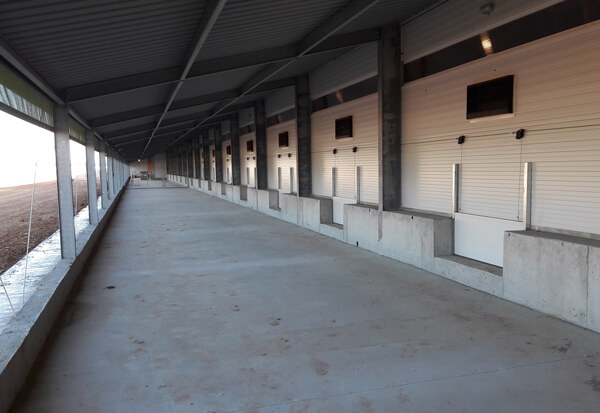
From the winter gardens to the outside there is a separation by automated mesh to confine the animals, if required. These are some of the main reasons why they may need to be kept inside:
The first and most important, is for sanitary measures. These measures are very useful in the case of bird flu, as we have seen in previous years.
The second reason is the risk of predators such as hawks or eagles attacking the hens.
CLIMATE CONTROL
Ventilation is a combi-zenith tunnel. Minimum ventilations are made through 14,000 m3 chimneys located on the ridge of the facility to ensure an environment with adequate levels of CO2 and ammonia. In addition, the facilities are equipped with GANDARIA high flow 48,000 m3 fans, ideal for this type of facilities.
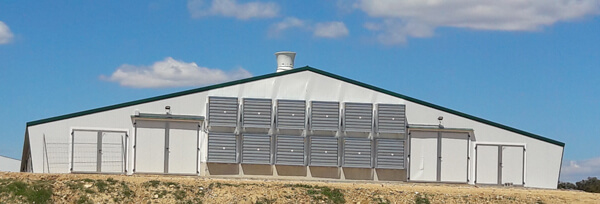
The cooling is carried out by GANDARIA-COOLING COMPAK. This system consists of 8 modules of 5m with high performance cellulose panels, which guarantees a temperature drop in summer, ideal for the birds’ comfort.
The climate control is able to correct and maintain the installation in optimal conditions so that the CO2, ammonia, humidity and temperature are always at the desired values. The system also gives us data about the flock, such as casualties, age, alarms, deviations from the norm, programming of release and collection of hens and facilitates the management of animals all together.
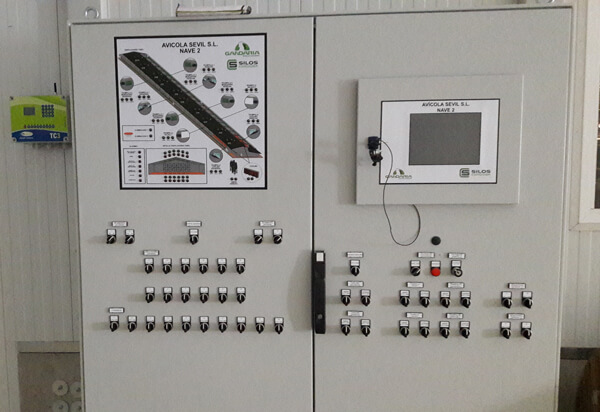
FOOD AND DRINK
The feeding system includes 2 silos of 22,000 kg with feed conveyor up to the chain feeders that distribute the feed. Moreover, the silos also feature a weighing system, not only to control the feed consumed but also to inform the farmer about the remaining feed.
The drinking system is equipped with a water treatment system using a chlorination pump and a medication dispenser that carries water to the nipple drinkers.
It also features an automatic egg collection system.
In this 40,000 hens farm, each 20,000 facility is divided into 4 batches of 5,000 birds, each batch having a totally independent area and separate equipment.
The eggs produced will be category 1 with KAT certification for the German market. The KAT regulation consists of a series of specifications that must be met by the egg producer, a very rigorous regulation aiming to set higher quality standards, if possible, than those existing in the European Community.






